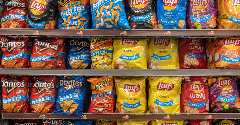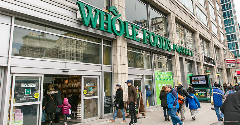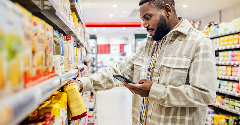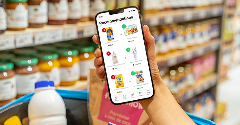News
Germany working to impose human rights and environmental supply chain protections by 2021
25 Aug 2020Germany is taking the lead on human rights and environmental protections in the European Union. The country plans to pass a Supply Chain Law that will oblige companies to analyze whether their business activities have an adverse effect on recognized human rights and environmental standards.
The new law will oblige German-based companies with more than 500 employees to ensure that minimum social and ecological standards are being met not only in their own supply chains but also within those of their suppliers, which are often in developing and emerging countries. The law will also require companies to take steps to counteract any breaches of minimum standards to eradicate destructive environmental practices and human rights violations.

This law has widespread support from NGOs and food and beverage manufacturers, including grocery chain Rewe, coffee manufacture Tchibo, Nestlé and Ritter Sport. An alliance of 64 nonprofits and German trade unions, including Human Rights Watch, supports the legislation. However, there is lingering controversy surrounds the proposed law. German business associations and the Minister for Economics Peter Altmaier voiced concerns that such a law would put additional burdens on companies already beleaguered by the economic ramifications of Covid-19. Despite these arguments, a report from Kearney shows that the pandemic has pushed environmental concerns even further to the forefront of consumers’ minds.
Since 2016, there has been support within the country to outline some sort of framework that establishes human rights and environmental due diligence requirements for companies. While there has yet to be any formal legislation mandating or enforcing standards, there have been plenty of voluntary efforts form private companies, and the country itself has set a goal of having 50% of its large corporations mitigating human rights and ecological violations.
However, two voluntary surveys have shown Germany is nowhere close to having 50% of its companies with more than 500 employees identifying, preventing and mitigating the adverse human rights and environmental effects associated with their business activities. In fact, in the first survey from 2019, not even 20% of surveyed companies achieve the requirements outlined in Germany’s National Action Plan on Business and Human Rights (NAP), which is based on the UN Guiding Principles for Business and Human Rights. Companies surveyed this year fared marginally better with 22% meeting NAP’s requirements.
These results show that a voluntary commitment is insufficient and has further fueled the support behind a mandatory human rights due diligence law in Germany. In 2018, the governing coalition in Germany determined that such a law would be passed should the country’s voluntary effort prove ineffective, DW reported. Now, the plan is to adopt a mandatory framework by 2021.
Related news

PepsiCo formulates ‘naked’ Cheetos and Doritos products
31 Dec 2025
US food giant PepsiCo has launched its Simply NKD range, a move it says reimagines its popular products with new formulations free from artificial flavours, dyes, and colours.
Read more
Debate over ban on ‘meaty’ names for plant-based products reaches stalemate
26 Dec 2025
The debate over a ban on plant-based products using “meaty” terms has reached a stalemate, leaving manufacturers in limbo and still facing overhauls to their marketing and packaging.
Read more
Ingredient transparency key to success in European natural health market
12 Dec 2025
Europe’s $40.7 billion supplements market is growing fast, fuelled by demand for products that support healthy ageing, mental wellbeing, and preventive health, say experts.
Read more
Whole Foods Market forecasts fibre frenzy for 2026
11 Dec 2025
Whole Foods Market has released its top 2026 trends, predicting that a fibre frenzy will take place next year as health-conscious consumers seek out nutritious, filling options.
Read more
Which sustainability-related labels are consumers willing to pay a premium for?
10 Dec 2025
Products with animal welfare and geographic origin labels elicit a higher willingness to pay a premium than those with carbon-related labels, research suggests.
Read more
Sorghum emerges as better-for-you hero ingredient
9 Dec 2025
With the launch of Novak Djokovic’s sorghum-based brand, the grain’s popularity in the better-for-you snacking sphere is on the rise, thanks to its nutritional and sensory properties.
Read more
Turning global trade challenges into opportunities
4 Dec 2025
While our food innovation ecosystem is in a healthy place, certain barriers persist. A panel of experts at Fi Europe shared their ideas and strategies for overcoming these, to fully unleash Europe’s potential.
Read more
Yuka’s food scanning app helps consumers make healthier choices
2 Dec 2025
Global food scanning app Yuka helps consumers understand the content of their shopping baskets and shapes producers’ reformulation plans.
Read more
Plastic packaging toxicity a ‘ticking timebomb’ for FMCG companies
1 Dec 2025
Studies on the toxicity of plastic have spiked in the past decade – and the evidence points to a “ticking timebomb” for manufacturers and consumers alike, an analysis suggests.
Read more
Non-UPF Program extends certification scheme to entire food industry
30 Nov 2025
The Non-UPF Program has extended its certification scheme to the wider food sector, championing a move towards healthier consumption habits.
Read more